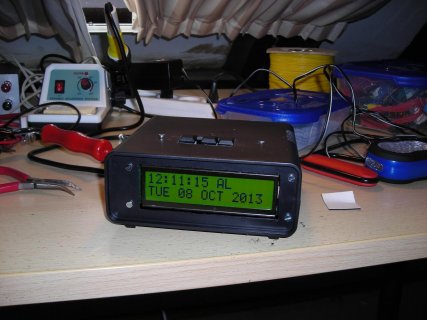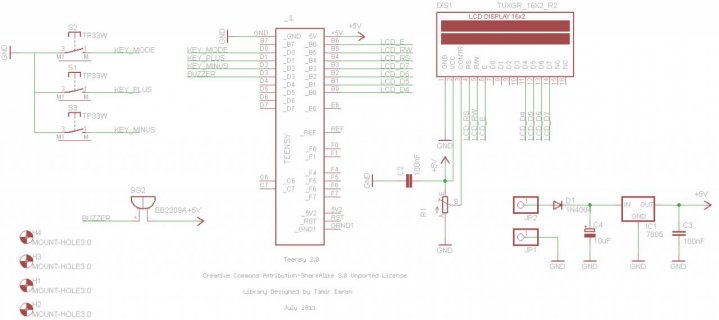
It has one feature which I'm still missing on most if not all stand alone clocks and alarm clocks: automatic daylight savings time adjustment. I'm doing this without radio-adjustment or a connection to the Internet.
There's currently no 'snooze' function implemented, but I've got a big red button somewhere if I feel the need in the future
I wrote the C code all by myself, including the HD44780 device driver.
I can post the code and schematics if people are interested.
Last edited:


